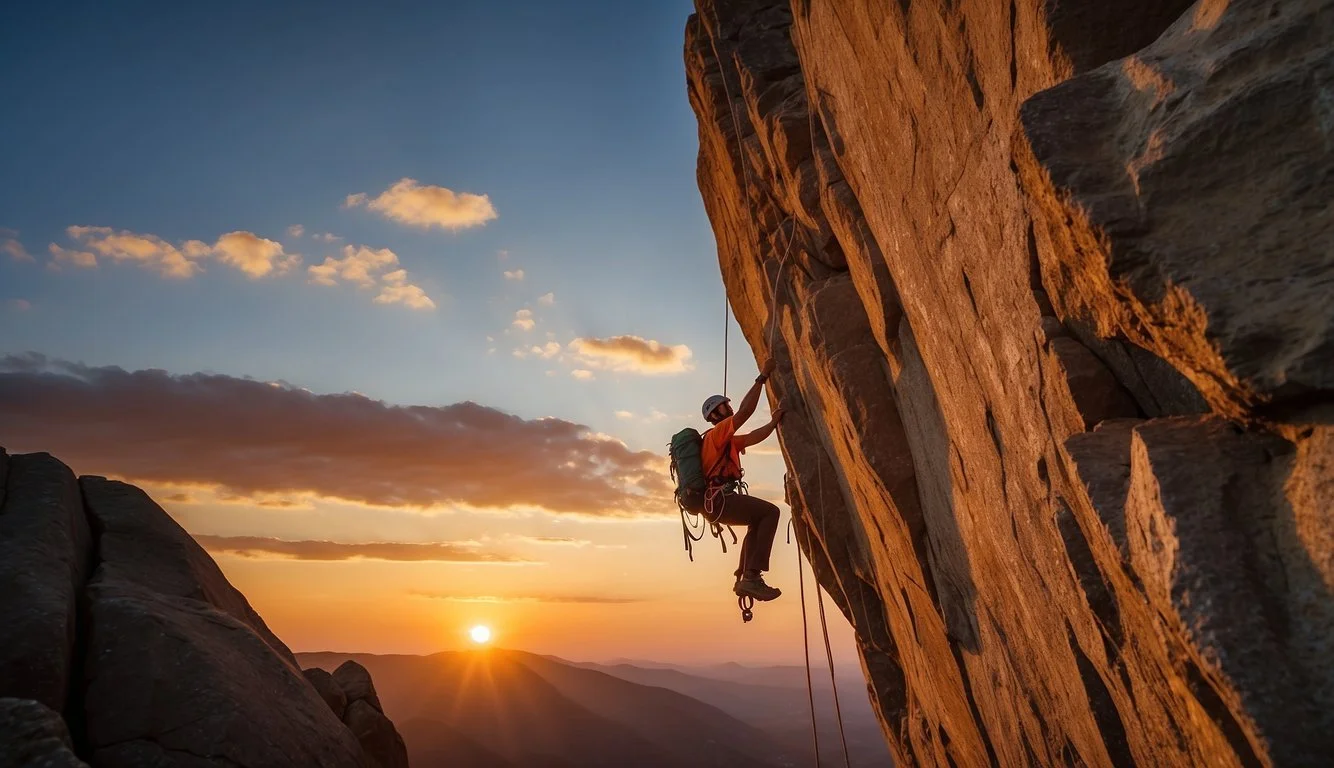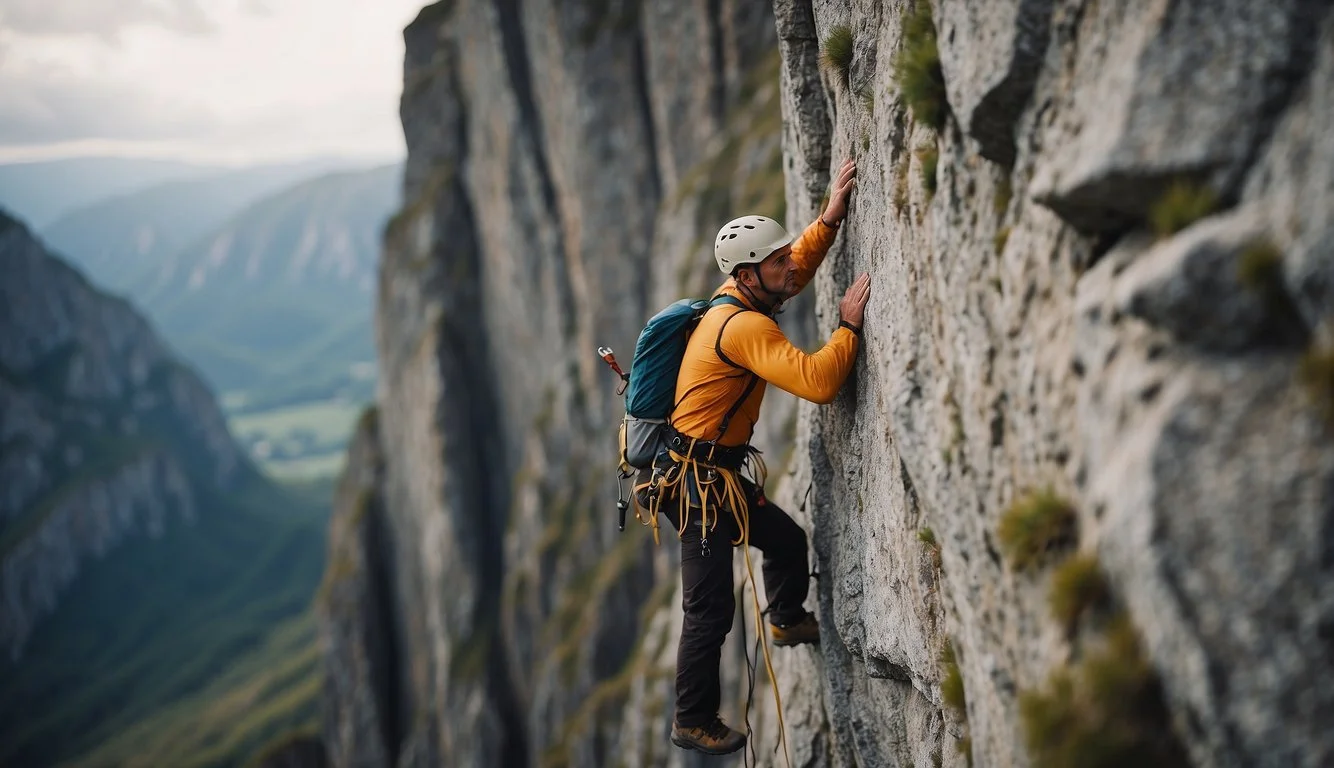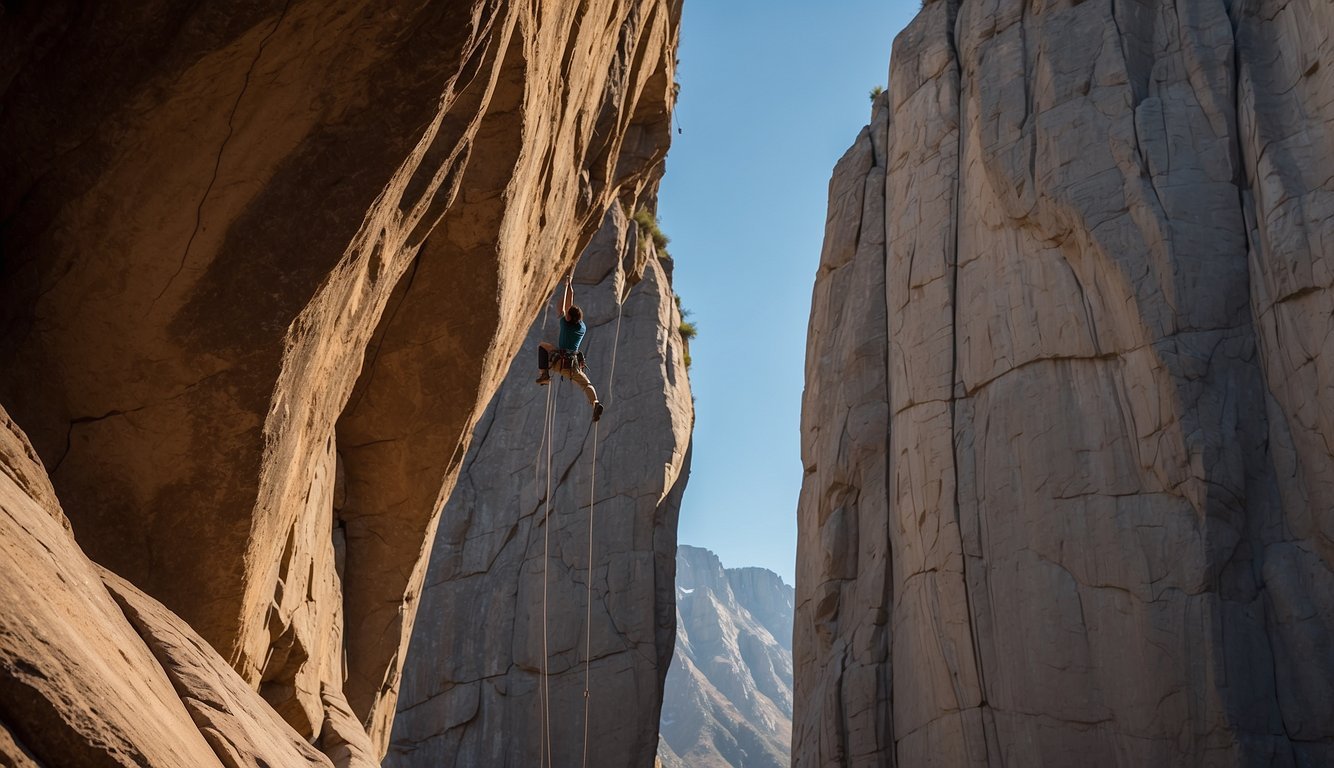Documentary Review: Free Solo (2018)
An Astonishing Climb
Alex Honnold's daring ascent of the towering 3,000-foot El Capitan wall without a rope serves as the core of the breathtaking 2018 documentary "Free Solo." The film, created by Elizabeth Chai Vasarhelyi and Jimmy Chin, provides a captivating look at the dedication, physical prowess, and mental fortitude required for such a feat. It vividly captures the extreme focus and spartan lifestyle that defines Honnold.
In "Free Solo," Honnold's meticulous planning and preparation are juxtaposed against the ever-present risks involved in free solo climbing, where a single mistake can mean death. The documentary does a stellar job depicting the sheer intensity and life-or-death stakes of free solo climbing, keeping viewers on the edge of their seats as they follow Honnold's journey.
The visual and narrative elements of "Free Solo" combine to create an unmatched cinematic experience. The filmmakers succeed in making viewers feel every moment of suspense, offering unprecedented access to Honnold's world of extreme climbing.
Overview of 'Free Solo'
"Free Solo" follows rock climber Alex Honnold as he attempts to climb El Capitan without ropes or safety equipment. The film highlights the physical and mental challenges of his journey, exploring both technical aspects and personal struggles.
Film Synopsis
"Free Solo" documents Alex Honnold's ambition to climb the 3,000-foot El Capitan in Yosemite National Park. This dangerous feat, done without the use of any ropes or harnesses, is called free solo climbing. The film chronicles his preparation, mental state, and the immense risks involved. Notably, it shows his first aborted attempt and finally, the successful climb that took place on June 3, 2017. The documentary captures not only the climbing scenes but also the emotional and psychological dimensions of Honnold's pursuit.
Production Background
Directed by Jimmy Chin and Elizabeth Chai Vasarhelyi, "Free Solo" premiered at the Toronto International Film Festival in 2018. The filmmakers are experienced climbers, which enabled them to capture the necessary footage under extreme conditions. The documentary was made using a combination of ground cameras, drones, and climbers with mounted cameras to provide a comprehensive view of Honnold's journey. Their expertise allowed them to craft a visually stunning and technically accurate portrayal of the climb. The production was also notable for its sensitivity to Honnold's mental state and the ethical implications of filming someone engaging in such a dangerous endeavor.
Key Themes and Messages
"Free Solo" emphasizes themes of obsession, fear, and human ambition. Honnold’s intense focus and minimalist lifestyle illustrate a singular dedication to his craft. The film explores the psychological challenges he faces, such as fear of failure and the potential for fatal errors. It also touches on the impact of his pursuit on personal relationships, particularly with his girlfriend, Sanni McCandless. The documentary raises questions about the limits of human capability and the cost of pushing those boundaries. Overall, it provides a nuanced look at what drives someone to achieve seemingly impossible goals at great personal risk.
Cinematography and Visuals
The cinematography in "Free Solo" is both technically impressive and visually captivating, turning the documentary into a masterclass of film making.
Filming Techniques
The filmmakers employed advanced techniques to capture climber Alex Honnold's ascent of El Capitan. They used long-distance lenses and drones to provide sweeping, wide-angle shots. The crew, consisting of Jimmy Chin, Clair Popkin, and Mikey Schaefer, meticulously planned camera placements in precarious positions to ensure both safety and exceptional footage quality.
The use of GoPro cameras offered intimate, first-person perspectives that heightened the viewer's connection to Honnold's experience. These varied filming methods combined to create an immersive visual narrative that captures not just the climb but also the surrounding environment.
Visual Impact
"Free Solo" is visually stunning, with every frame highlighting the natural beauty of Yosemite National Park. The contrast between Honnold's minute figure and the vast granite face of El Capitan is striking. This visual juxtaposition emphasizes both the scale of his endeavor and the sheer audacity of climbing without ropes.
The lighting plays a crucial role in enhancing the film's visual appeal, from dawn's early light to the shadows cast by the mountain. The documentary's visuals not only showcase the physical challenge but also evoke the emotional intensity of Honnold's journey, making "Free Solo" a visually unforgettable experience.
Cast and Characters
"Free Solo" (2018) focuses primarily on Alex Honnold, the rock climber who attempts to make history by free solo climbing El Capitan in Yosemite National Park. Additionally, it features key individuals who provided support and insight into Honnold's life and training.
Alex Honnold - The Protagonist
Alex Honnold is the centerpiece of the documentary. He is a renowned rock climber noted for his obsession with free solo climbing, which involves scaling sheer rock faces without ropes or harnesses. Honnold is depicted as intensely focused, driven, and remarkably disciplined. His physical and mental preparation for climbing El Capitan is meticulously documented, showing his methodical approach to training. Living out of a van, Honnold's spartan lifestyle underscores his dedication to his craft, choosing simplicity to facilitate his climbing pursuits. His interactions reveal a personality deeply committed to pushing human limits in climbing.
Supporting Cast
Several individuals play significant roles in the documentary, enriching the narrative of Honnold's journey. Notable among these is Tommy Caldwell, a fellow rock climber and close friend who provides both emotional support and expert advice. Jimmy Chin and Elizabeth Chai Vasarhelyi, the directors, are essential figures behind the camera, capturing Honnold’s breathtaking climbs and personal moments. Cheyne Lempe, another climber featured, assists in the preparation and offers valuable insights into the technical aspects of the climbs. The supporting cast contributes to a deeper understanding of Honnold's world, illustrating the network of relationships that both challenge and support him in his daring endeavors.
Direction and Production
"Free Solo" stands out due to its meticulous direction and the enormous challenges faced during production. The directors' approach and the logistical difficulties encountered add depth to the film's gripping narrative.
Directors' Approach
Jimmy Chin and Elizabeth Chai Vasarhelyi directed "Free Solo," capturing Alex Honnold's daring climb with remarkable precision. Their filmmaking approach blended close-up intimate moments with sweeping wideshots of El Capitan.
This duality allowed viewers to grasp both Honnold's psychological state and the majestic scale of his climb. Chin’s background in climbing provided essential insights and access, enabling the crew to film in precarious positions.
The directors chose to focus intensely on Honnold’s meticulous preparation, highlighting the psychological toll and rigorous physical training involved.
Challenges in Production
The production of "Free Solo" faced significant obstacles, primarily due to the dangerous nature of the climb. Filming on El Capitan required specialized equipment and extreme caution. The crew had to ensure their presence did not disturb Honnold or compromise his safety.
The filmmakers implemented innovative techniques to capture the ascent without interfering. Setting up cameras on fixed ropes and using drones were key strategies. Coordinating these efforts necessitated meticulous planning and synchronization among the crew.
Balancing cinematic quality with the ethical responsibility of not endangering the subject was a constant logistical challenge, showcasing the dedication and expertise required to complete the project.
Climbing Community and Cultural Response
"Free Solo" has had a significant impact on both the climbing community and the broader cultural landscape. The film's portrayal of Alex Honnold's daring ascent has evoked strong reactions from climbers and has influenced climbing culture in profound ways.
Reception by Climbers
The climbing community received "Free Solo" with a mix of admiration and amazement. Many climbers hailed Alex Honnold's accomplishment as a pinnacle of human capability.
Professionals and recreational climbers alike were impressed by his meticulous preparation and mental fortitude. Some viewed the climb as a new benchmark in the sport, pushing the boundaries of what is possible without safety gear.
Yet, there were also voices of concern. Some climbers felt that the film might encourage inexperienced individuals to attempt dangerous climbs without proper training or equipment. The community emphasized that while Honnold's skill and experience are extraordinary, such feats shouldn't be taken lightly.
Impact on Climbing Culture
"Free Solo" has undeniably influenced climbing culture by bringing the sport into the mainstream. The documentary introduced climbing to a broader audience, sparking interest in climbing gyms and rock climbing excursions.
This increased visibility has led to a surge in climbing memberships and more people taking up the sport as a serious endeavor. Additionally, the film has inspired climbers to pursue their own ambitious projects, motivating them to push their limits and think creatively about new routes and challenges.
However, the film also sparked debates about safety and ethics. Within the climbing community, discussions about the responsibilities of climbers, filmmakers, and the audience have become more prevalent, emphasizing the importance of informed and responsible climbing practices.
Critical Reception
"Free Solo" garnered significant attention upon its release, drawing widespread praise for its breathtaking visuals and compelling narrative. Critics celebrated the film's intimate portrayal of Alex Honnold's extraordinary feat and the profound risks involved.
Critical Acclaim
Critics were universally impressed with "Free Solo." The documentary was lauded for its stunning cinematography and the deeply personal insight it provided into Honnold's life. Roger Ebert's review highlighted the mental and physical preparation Honnold underwent, emphasizing the film's ability to maintain suspense throughout.
The Critical Movie Critics also praised the film, noting its insight into Honnold's free climb of El Capitan's 3,000-ft wall. The film stood out for its ability to balance exhilarating climbing footage with introspective moments, capturing the essence of extreme climbing.
Awards and Nominations
"Free Solo" achieved critical acclaim not just from reviewers but also from award bodies. It premiered at the Telluride Film Festival and was well-received at the Toronto International Film Festival. The documentary went on to win the Academy Award for Best Documentary Feature in 2019, one of the film industry’s highest honors.
Additionally, it received numerous other awards and nominations, including a BAFTA Award for Best Documentary and multiple nods from critics' associations. The recognition it received cemented its status as a landmark achievement in documentary filmmaking.
Analysis of Risk Taking
The documentary 'Free Solo' uniquely explores the philosophy of risk in extreme sports, illustrating Alex Honnold's distinctive approach to fear and how it shapes his climbs.
Philosophy of Risk in 'Free Solo'
In 'Free Solo', risk is portrayed as an inherent part of extreme climbing. Alex Honnold's climb of El Capitan, without ropes or safety gear, highlights the ultimate stakes involved. Risk-taking is integral to the sport and is not merely a byproduct but a defining feature.
The documentary depicts how Honnold meticulously prepares, balancing immense risk with calculated precision. It underscores the fine line between life and death, making viewers question what drives someone to embrace such peril. This philosophical inquiry into risk is central, making 'Free Solo' not just a film about climbing but a deeper contemplation of human limits.
Alex Honnold's Perspective on Fear
Honnold's perspective on fear is nuanced and complex. Unlike many, he views fear as something to be managed rather than avoided. Through rigorous physical preparation and mental conditioning, Honnold reduces his fear, treating it almost clinically.
The film shows him methodically practicing climbs and visualizing every move, demonstrating his belief that fear can be controlled through preparation. This unique approach allows him to perform under pressure and tackle daunting challenges. Honnold's mindset contrasts sharply with conventional views on fear, making his achievements even more remarkable.
Technical Aspects
"Free Solo" excels in many technical areas that elevate the film's gripping narrative and visual delight. The score and sound design, coupled with the meticulous editing techniques, play crucial roles in enhancing the viewer's experience.
Score and Sound Design
The score and sound design of "Free Solo" greatly contribute to its immersive quality. Composed by Marco Beltrami, the music underscores the tension and drama of Alex Honnold’s daring climb.
The choice of instruments, often orchestral with subtle electronic elements, matches the film's emotional beats.
Sound effects highlight the physical challenges Honnold faces, such as the scraping of his fingers on the rock. Silence is strategically used to amplify the sense of danger and isolation. Overall, the audio components make the film engaging and emotionally resonant.
Editing Techniques
Editing in "Free Solo" is executed with precision and thoughtfulness. The film seamlessly blends interviews, climbing footage, and personal moments, creating a coherent and compelling narrative.
High-angle shots emphasize the perilous nature of Honnold's climb, while close-ups capture his intense focus and physical strain.
Cross-cutting between Honnold's climb and reactions from his loved ones builds emotional tension. Timing and pacing ensure that viewers remain on the edge of their seats without feeling rushed. The editing effectively bridges the gap between Honnold’s private life and his public accomplishments.
Conclusion
"Free Solo" is a documentary that masterfully captures the tension, dedication, and physical prowess required to accomplish one of the most extreme feats in rock climbing—scaling El Capitan without ropes.
Summation of 'Free Solo's Significance
"Free Solo" meticulously illustrates Alex Honnold’s journey to conquer El Capitan. The film delves into the psychological and physical challenges he faces, portraying a level of commitment and mental fortitude that is nothing short of extraordinary. The cinematography, combined with the real-time challenges Honnold encounters, creates a gripping narrative that keeps viewers engaged. These elements ensure the film is not only a testament to Honnold's skills but also a compelling exploration of human determination and resilience.
The Legacy of the Documentary
"Free Solo" has left an indelible mark on both the documentary genre and the broader climbing community. Directed by Jimmy Chin and Elizabeth Chai Vasarhelyi, the film's success is reflected in its critical acclaim, including winning an Academy Award for Best Documentary Feature. By bringing rock climbing into mainstream consciousness, "Free Solo" has inspired viewers worldwide, illustrating how extreme sports can transcend their niche appeal. It stands as a landmark film that will continue to influence and inspire future generations of climbers and documentarians.




